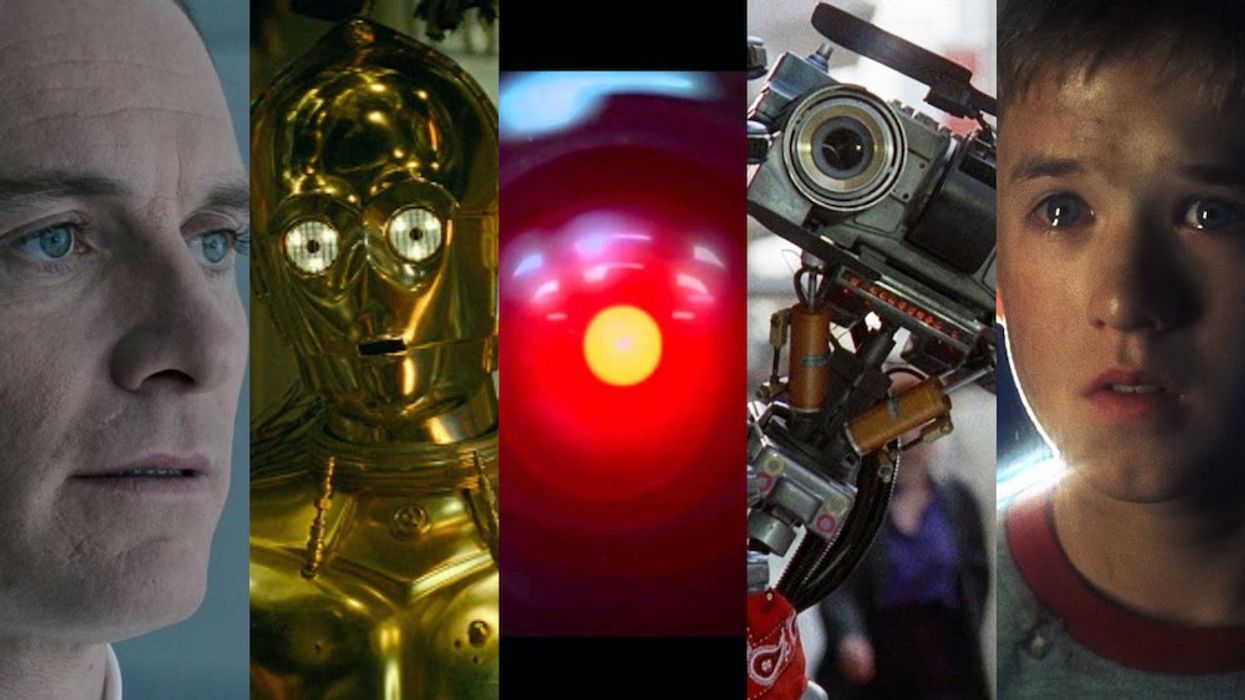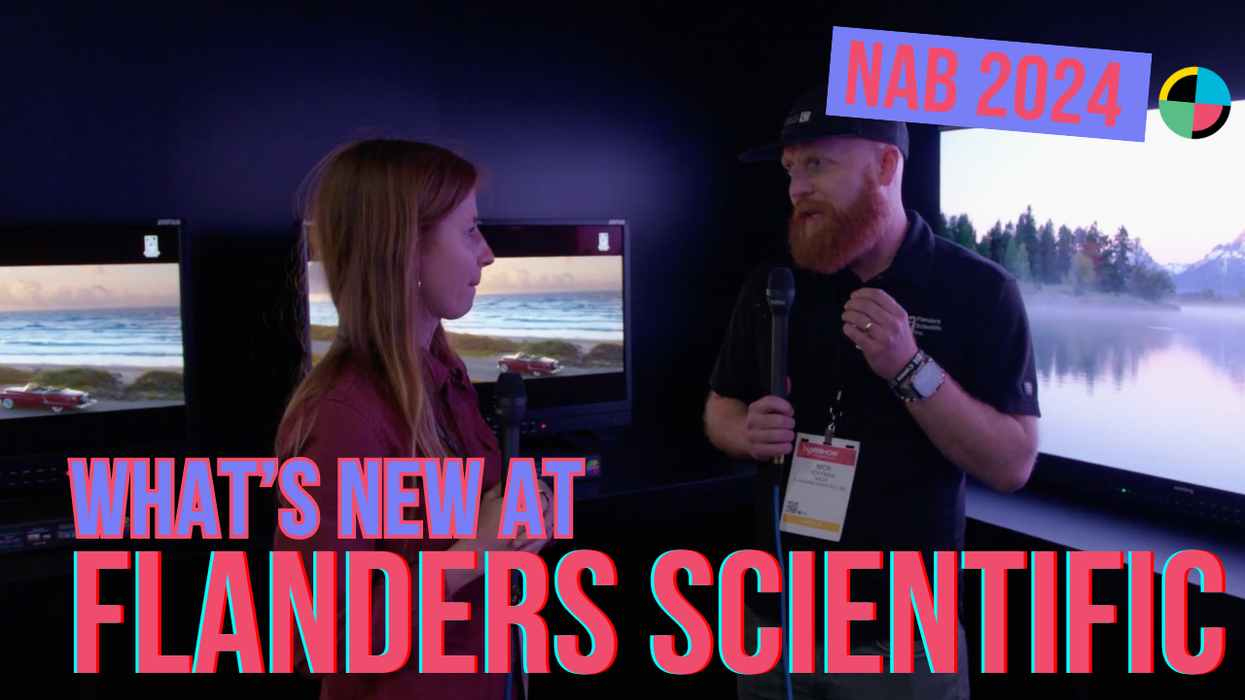How Do You Craft Artificial Intelligence for a Screenplay?
Writing humans is hard but writing artificial intelligence presents a whole new set of hoops to jump through.

We've already passed the original year from Blade Runner (2019), and while we live in a dystopia, we don't have flying cars or robots posing as humans. Although, I get a lot of bot replies on Twitter, so maybe we're coming close.
Humans have always been fascinated by science fiction. As technology gets better and better, we see great leaps in where our imaginations can take us. It's not all aliens and time machines, but sometimes we even get nuanced looks at what makes us human, in the eyes of machines.
I'm talking about artificial intelligence.
Or the robots, computers, and mechanized life-forces created by humans to be...well...human.
Today I want to go over some challenges of writing artificial intelligence and things you should confront to make your screenplays deeper and more satisfying.
But first, check out this video from Richard DeZerga and let's talk after the jump.
Get the Scoop on Writing Artificial Intelligence
The idea of humans playing god and creating life is nothing new. We used to call it "birth," but as technology shifts, we're able to create things that are not living (or made of human stuff) and give them life. That's the general thesis behind the idea of artificial intelligence.
Can we imbue enough humanity into a robot to give them a personality to make them feel human?
And when we bridge that gap, does their life count? Does it matter?
These are a few of the big questions asked by movies like Her, Ex Machina, A.I., and Blade Runner (both the OG and 2049). These are deeply moral and ethical ideas that make all those movies more interesting and their screenplays lauded for their attention to detail.
So, how can you learn to write better science fiction and artificial intelligence?
Start by answering a question.

What's Relevant?
When you write a science fiction movie, it might take place in the distant future, but the argument or theme of the film needs to be relevant to today's viewer. When it boils down to artificial intelligence, there are mainstays and new questions asked all the time.
The best science fiction has something important to say about our world.
So, what can you say with AI?
The Idea of Personhood
The most popular question artificial intelligence poses in movies and TV is that of personhood. Is a character that is AI deserving of being treated like a human.
People on Star Trek seem to think so. Data is revered by Picard and even has his own Pinnochio-style yearnings to be a real human. Still, his lack of social skills, while being part of his humor, constantly reminds us that he has a lot to learn about intelligent life.
What about Star Wars?
We see them buying and selling droids. And droids are not even allowed in some bars!
This discrimination, while echoing humanity's racism (and specism), show that robots are not valued as people, despite mastering social cues and having varying levels of intelligence.
But let's dig deeper.
If you look at a movie like Alita: Battle Angel, we see that the question of whether or not someone belongs in a certain place is ever-present in AI movies and TV shows. Even a cartoon like The Jetsons has its own AI personality, Rosie the robot maid.
While being a part of the family, Rosie is basically sold into slavery. She's run into the ground over and over, damaged without worry. While this is all done in tonally relevant ways, it's important to understand that the Jetson family might enjoy Rosie, but they don't treat her like a human.
That brings us to the first thing you need to confront while writing artificial intelligence...
Personal Interaction with AI
The main thing movies with AI deal with is the indication of life. The video you watched earlier addresses this question within Her and Ex Machina. I think those two examples are spectacular because they both address a question in polar opposite ways.
While Her is focused on showing us the soul of a machine without a body, Ex Machina is focused on showing us the body of a machine and asking us if it has a soul.
Both are effective in their own ways. In Her, we have to learn, along with its main character, to respect and enjoy the voice inside our head.
With Ex Machina, we're drawn to exterior beauty but lulled into seeing something for its exterior—growing to be attached to something that someone else sees as replaceable.

When you start your screenplay or pilot, think about how AI is viewed by the general population in your story and by its creators.
That will open up the worldbuilding for us and clue us in on your relevancy to modern times.
So, let's talk creators for a beat.
Personal Interaction with the Creators
Much of the lessons we glean from the story come from how the creators view and interact with their creations. Are they benevolent gods or vengeful gods?
In a movie like Ex Machina, the creator of intelligence does not view them as human. He wants to continue to upgrade them, even if that means "killing" what came before the newest iteration.
Her never lets us see the creator. Instead, it focuses on the person who interacts with the voice, that the voice molds itself to the objects of his desires. In a way, that deepens the personality and makes them the creator.

What can be gleaned from the way these creators interact with their creations?
In something like iRobot, we learn the creator put his utmost faith in (SPOILER) something that killed him. As machines get more of a mind of their own, like they do in 2001 and in The Matrix Trilogy, they grow tired of humans and tend to get violent.
Is that a product of humans that created them in our image and likeness? Are we so petty and vindictive, casting aside who can and cannot help us for something else?
Yes.
There's More to Robots than Zeroes and Ones
To write effective artificial intelligence, you need to treat robots like any other character. First, ask about their motivation.
But what about how the creators of these machines make sure there's goodness in them? Like the compassion showed by fellow robot captives in the movie AI: Artificial Intelligence. Or what about the robot in Lost in Space? All he wants to do is protect.
He's motivated because Will Robinson helped him.
Even Joy in Blade Runner 2049 is willing to put her life on the line for humanity. Same with the Ryan Gosling robot in 2049 as well.

They are exploring love, sex, and humanity...but as created beings.
A movie like Wall-E shows us that robots can be good, bad, and mindless cleaners.
We're using the best examples so you can see how deep this rabbit hole goes. The most important takeaway from an article like this is that you always motivate artificial intelligence. Give them a reason for their actions and you're off to a better start than most screenplays.
Good luck and happy writing.
What's next? Check out every single Spike Jonze music video!
Jonze’s 60+ music videos span three decades and showcase the dynamic development of both the medium and its maker.
So what can they teach you about how he learned to direct?

 No Film School's coverage of
No Film School's coverage of 









